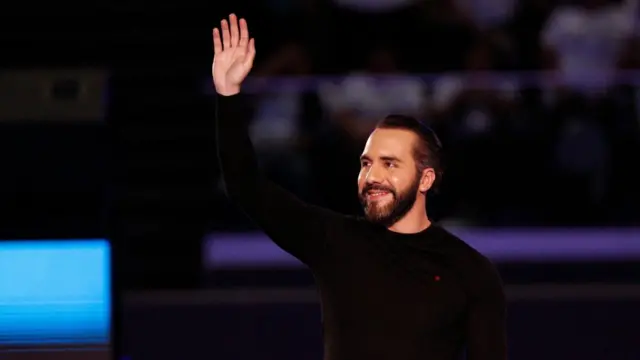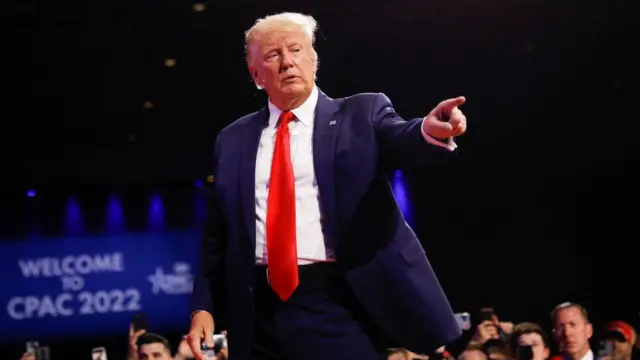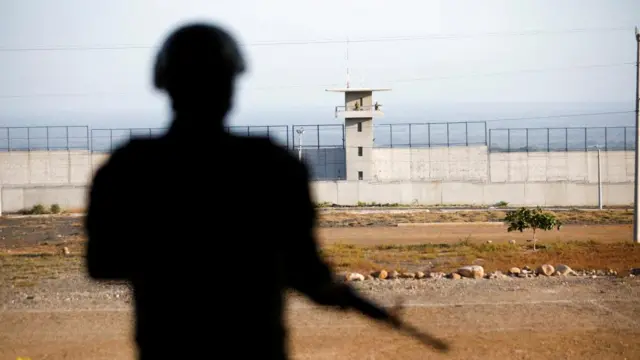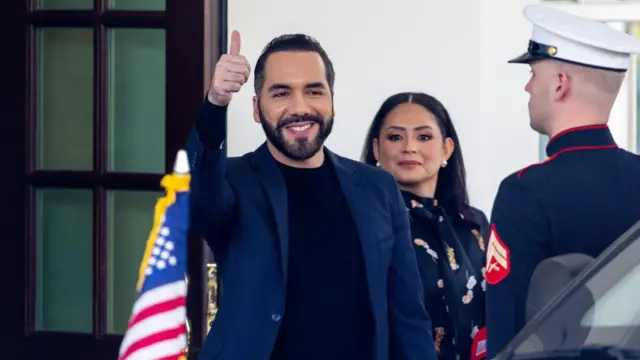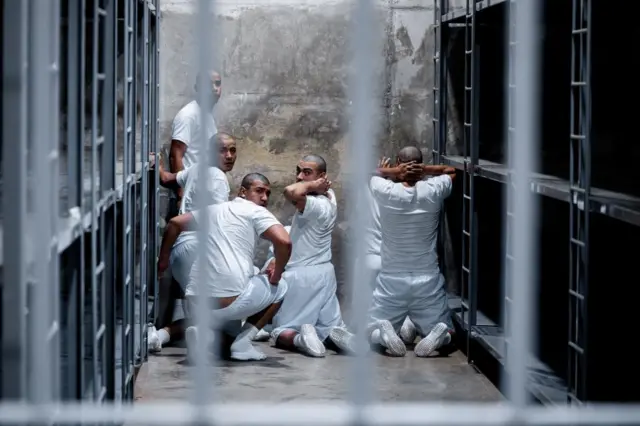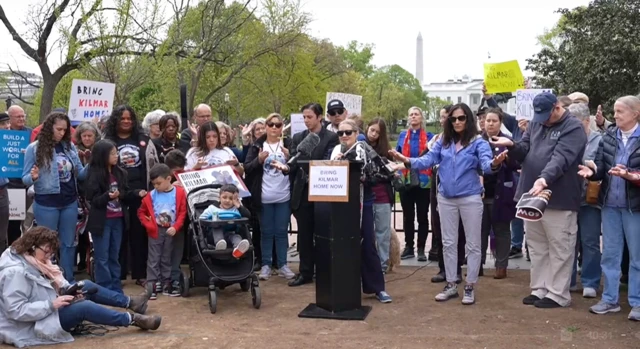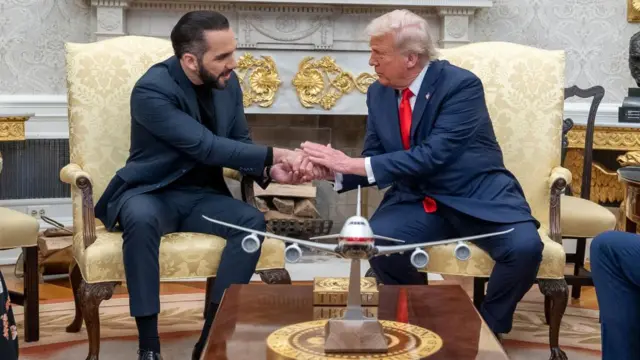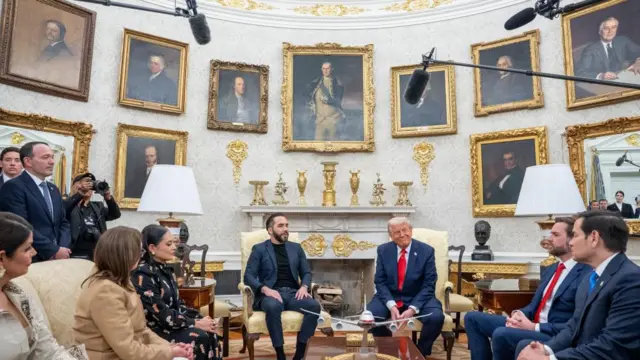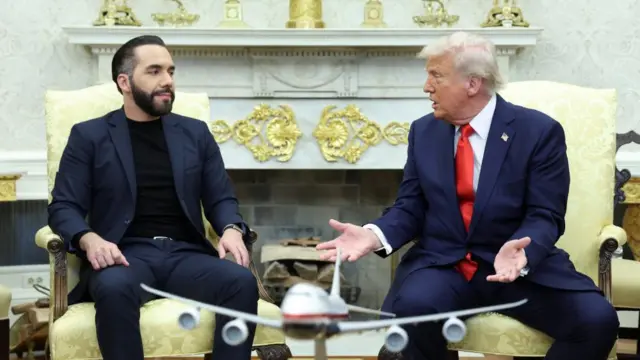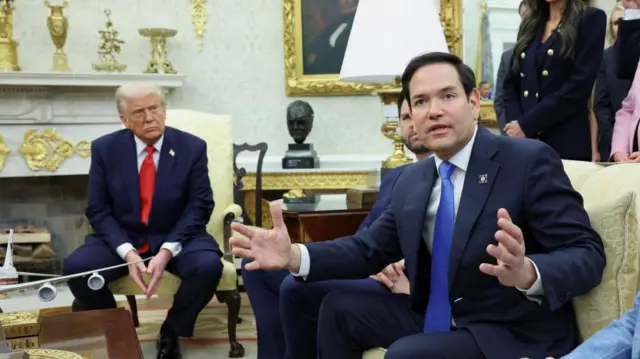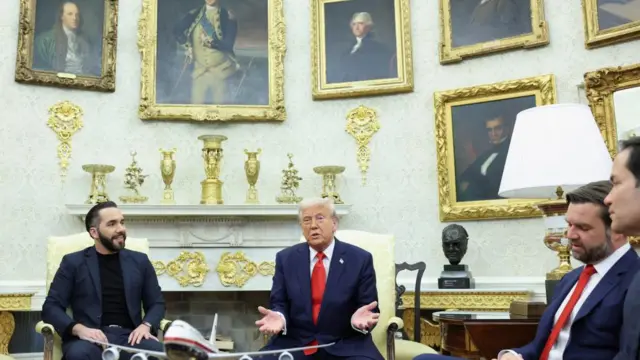Compliments, jokes, deportation discussions: A meeting of two leaderspublished at 20:27 BST 14 April
 Imogen James
Imogen James
Live reporter
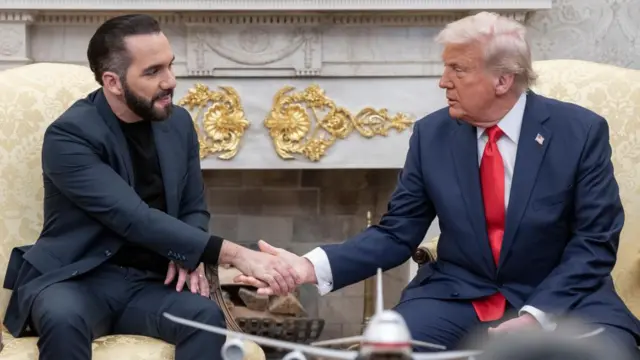 Image source, EPA
Image source, EPAIn his latest meeting with a foreign leader, US President Donald Trump welcomed El Salvador's President Nayib Bukele to the White House in Washington DC today.
In the Oval Office, the pair appeared friendly as they spoke to reporters, often laughing and cracking jokes together.
As our reporters and correspondents have explained, the meeting solidifies a a key alliance for Trump and Bukele.
The US president has begun deporting Venezuelan immigrants to the notorious Cecot mega-prison in El Salvador, with Bukele's backing.
Trump said today that Bukele is "really helping out" the US out by facilitating these detentions, as the Salvadoran president responded that his country is "very eager to help".
Trump also floated the idea of sending US citizens to the maximum-security prison in the future, but that he'd need to look into the legal technicalities first.
The pair were asked by reporters about the case of Kilmar Ábrego García, the Maryland man who was deported to El Salvador in what Trump's government has described as an "administrative error".
Attorney General Pam Bondi told reporters at the White House that the fate of the father of three is now up to El Salvador.
Buekele then said that he does not have the power to return Ábrego García t the US - and that he won't.
Also on the agenda was topics including transgender people in sports, DEI and women, Iran and tariffs and Ukraine and Russia.
After their public question-and-answer session, we're told the two presidents went onto a private lunch, but Bukele gave a thumbs up to reporters as he left the White House a few hours later.
We are ending our live coverage of today's visit, here but you can find more content on the El Salvador deportations from the BBC:
- Read about the unanimous Supreme Court decision on the Ábrego García case that Trump is taking as a win
- Venezuelans deported to mega-prison 'trapped in black hole'
- Stay up-to-date on today's White House visit: El Salvador's leader will not return man deported from the US in error
